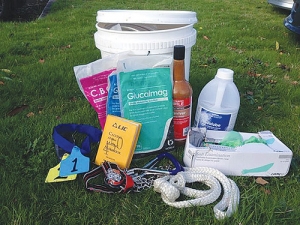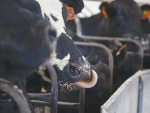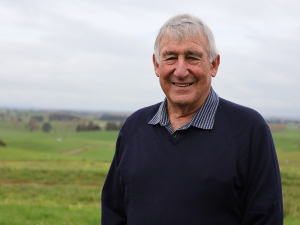Pre-calving checklist
• Supplies of metabolics, electrolytes, navel spray, etc on hand or ordered.
• New team members up-to-date on farm policies and what to expect during calving.
• Calf trailer and feeding equipment clean and disinfected.
• Calf shed clean and disinfected and all repairs and maintenance done.
• Designated sick calf area ready.
• Fresh bedding laid in calf shed.
• Calving kit prepared.
Calving kits
A well-stocked calving kit will save you making trips between the paddock and the shed.
Keep your calving kit at the gate of the springer paddock. Have a team member in charge of making sure it is restocked regularly.
Looking after your team
Planning and preparing for calving with your farm team will reduce stress when calving is in full swing and help it run smoothly.
Hold a team meeting prior to calving and decide who will do what and when. Post the plan where everyone can see it. Introduce new staff to systems and processes so everyone is on the same page when calving starts. Establish a roster and make sure staff know how to fill out timesheets.
Eating well is important: some owners provide staff with crockpots, keep healthy snacks at the shed and/or eat a cooked breakfast together after milking.
Health and hygiene
Newborn calves need more care and attention as they have a lower immune system. Following good biosecurity practices will help you rear healthy calves and keep the farm team healthy.
Good biosecurity measures include controlling wild birds and rodents, managing visitors and regularly cleaning equipment, work clothes and vehicles.











